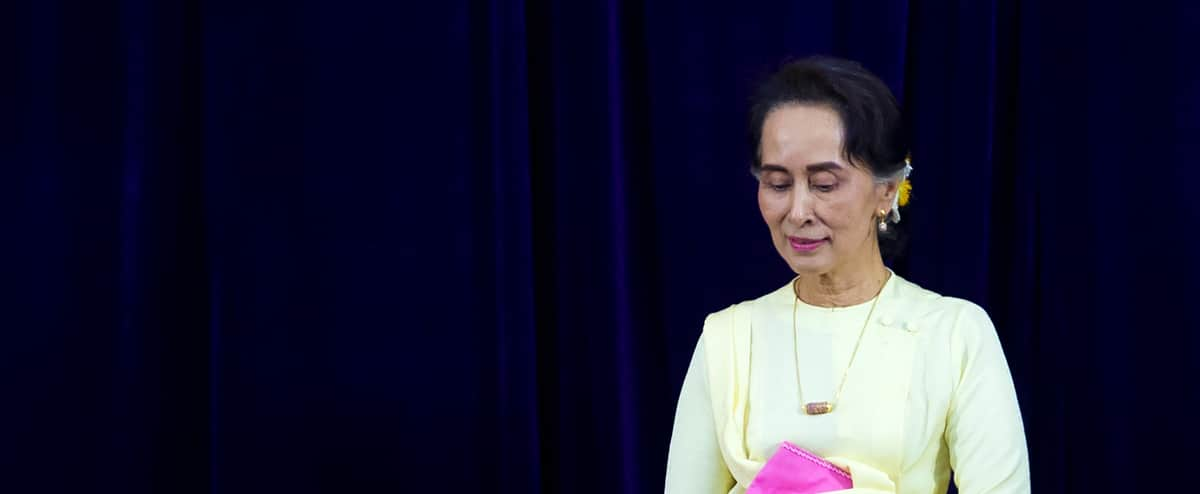Rangoon | Burmese leader Aung San Suu Kyi was indicted on Wednesday, two days after she was ousted in a coup as calls for civil disobedience mount, as doctors and health workers led the protest.
Also read: Burma: Beijing calls for “not to complicate the situation”
The military abruptly ended the country’s fragile democratic transition on Monday, declaring a one-year state of emergency and arresting Suu Kyi, 75, the de facto head of the civilian government, and other officials of the National League for Democracy (LND) party.
The former leader was charged with “violating import / export law” and “the court ordered her pre-trial detention” until February 15, according to Ki Tu, a spokesperson for the National League for Democracy.
According to Kyi Toe, former President Win Myint, who was also arrested, is on trial for violating the Natural Disaster Management Act.
The raids were carried out in different headquarters of the movement and documents were seized, according to the party.
Two days after this coup, condemned by many foreign capitals, the first signs of resistance appeared.
Doctors and health professionals, who wore red ribbons (the color of the National League), refused to work, except in cases of medical emergency.
“We will only obey the democratically elected government,” Aung San Min, head of a 100-bed hospital in Magway District, told AFP as the military challenges the legislative elections in November, which the NLD won by an overwhelming majority.
Medical staff from Yangon General Hospital gathered outside the facility and gave a three-finger salute, a resistance gesture already embraced by pro-democracy activists in Hong Kong or Thailand.
One group, the “Civil Disobedience Movement”, was launched on Facebook, with about 160,000 subscribers. One could read “Shame on the army”, “The soldiers are thieves.”
On Tuesday evening, in the commercial district of Rangoon, the economic capital, residents sounded their horns, banged on pots and pans, some chanting, “Vive Mère Suu!” (Suu Kyi).
Sensing the events, the latter, who will now be under house arrest in the capital, Naypyidaw, urged residents not to “accept” the coup in a pre-written letter.
But fear of revenge remains intense in the country, which, since its independence in 1948, has lived under the yoke of a military dictatorship for nearly 50 years.
“The population knows very well how the military can be violent and cares little about its international reputation,” said Francis Wade, author of books on the country.
Warning
The authorities have already issued a warning, warning against any letter or message that could “encourage riots or an unstable situation.”
The coup, which General Min Aung Hlaing considered “inevitable”, sparked a series of international condemnations.
After threatening to impose new sanctions, the Joe Biden administration raised the rhetoric again against Burma, the first major international test for the new US president.
A US official said that Suu Kyi and Win Myint “were overthrown in a military coup.” This legal qualification precludes Washington’s direct assistance to the Burmese state.
But the act is still mainly symbolic: Burma’s military has already been subject to sanctions since its soldiers committed in 2017 atrocities against the Muslim Rohingya minority, a crisis that has led UN investigators to accuse Burma of “genocide”.
Chinese ally
The UN Security Council met urgently and behind closed doors on Tuesday, but failed to agree on a common text. Negotiations are still ongoing, according to a diplomat, who requested anonymity.
To be adopted, the declaration requires the support of China, which is exercising its veto power as a permanent member of the Security Council.
Nevertheless, Beijing remains Burma’s main support in the United Nations. During the Rohingya crisis, China thwarted any initiative in the Security Council, believing that the conflict with the Muslim minority was an internal matter in Burma.
The G7 foreign ministers said they were “very concerned” about the events, and so did the International Monetary Fund “extremely concerned” about their potential impact on the economy of the country, which has already been struck by the Coronavirus epidemic (more than 140,000 cases and 3,100 infections. The deaths recorded).
The National League for Democracy on Facebook called for the immediate “release” of Aung San Suu Kyi, 75, and his other officials, denouncing the “stigma in the nation’s history” and calling on the military to “recognize the outcome” of the November elections.
A party spokesman said that no direct contact was made with Suu Kyi, although neighbors saw her walking in the garden of her official walled house.
The army promised to hold new elections after lifting the state of emergency for a year.

“Extreme twitteraholic. Passionate travel nerd. Hardcore zombie trailblazer. Web fanatic. Evil bacon geek.”

